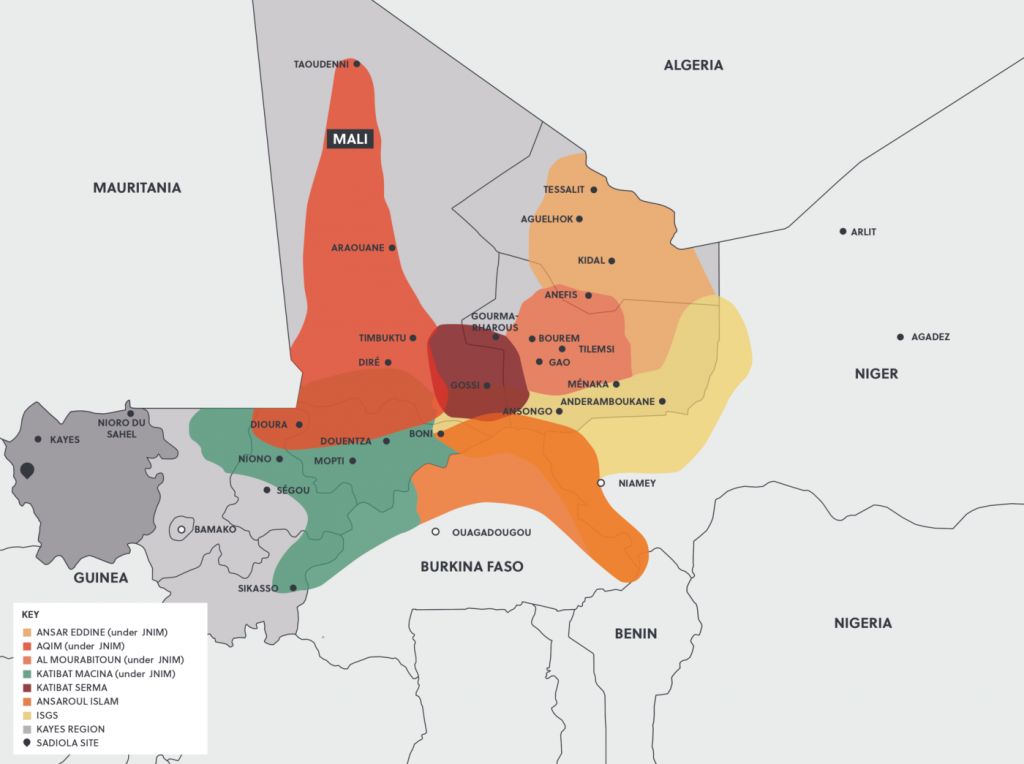The situation in Burkina Faso, Africa is deteriorating as jihadist forces spread their ops northwards in the country. The U.S. Embassy in Burkina Faso’s capital said it had ordered the departure of family members of embassy employees under the age of 21 from the country due to the deteriorating security situation. The announcement also comes as the U.S. State Department raised its travel advisory for American citizens to “Do Not Travel” as a result of “terrorism, crime and kidnapping,” according to the advisory.
Libya’s instability has been devastating to security across the Sahel and is the source for the armed groups weaponization.
High level of unemployment is also encouraging the jihadist capabilities of recruiting new members of terrorist groups.
Illegal gold mining becomes the source for their financing. Armed groups try to gain control over some long-term mining sites. In this case, foreign mining companies are under risks. These groups have also declared their intent and have targeted commercial operations in the past five years.
The Burkinabe state is now inactive in some parts of the country and has lost significant territory, nowadays controlled by the jihadist groups, mainly composed of Ansaroul
Islam local militants as well as more regional Al Qaeda in the Islamic Maghreb, Al
Mourabitoun, and Islamic State in the Greater Sahara.
“Militant groups control northern Soum, while territory remains contested in parts of the Sahel including Oudalan Province, Yagha, and Seno; and the Centre-Nord, Nord, and Est Regions”.
Islamist militant groups have proven highly adaptive to these operations, in part, due to their ability to use leverage over local networks and secure an acute awareness of local dynamics and terrain.
Jihadist groups began attacking Burkina Faso in 2015, a few months after Blaise
Compaoré, who was president for 27 years, was removed from power in a popular
uprising against president’s attempt to prolongate his terms in power through
constitutional changes.
The post-Blaise transitional government ended Compaoré’s unofficial policy of
negotiating with terrorist groups and allowing northern Malian separatists with ties to terrorists free access to Burkina Faso in exchange for no attacks on Burkinabe soil. The transitional government also dissolved the feared presidential guard, Burkina’s best-equipped and best-trained military unit.
Jihadist groups based in neighboring Mali took advantage of the disorder and moved in.
Deficit of foreign well-trained forces in operational zone and complex terrain conditions decrease effectiveness of countering terrorism.
Warnings of an “escalating humanitarian crisis” in Burkina Faso were issued by the UN and its food assistance branch, the World Food Programme (WFP).
One third of Burkina Faso is now a conflict zone, with 480,000 displaced persons at the end of 2018.
That number is expected to rise to 650,000 by the end of year 2019.





